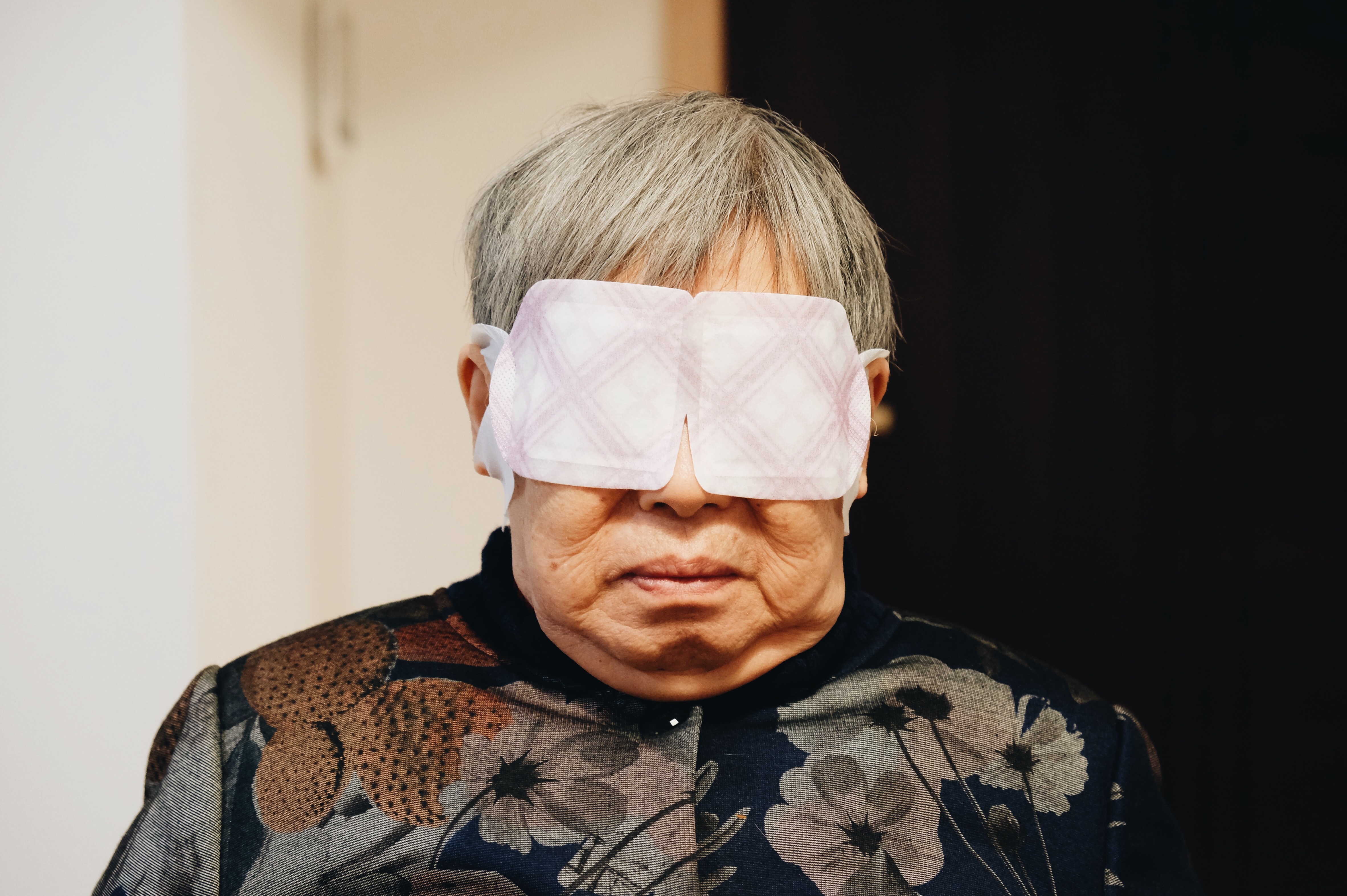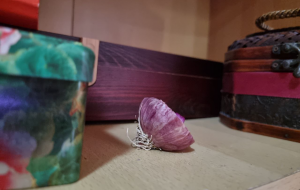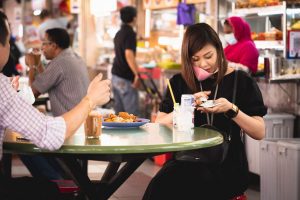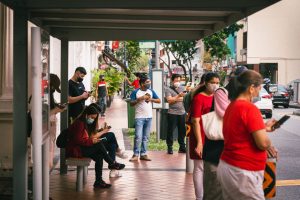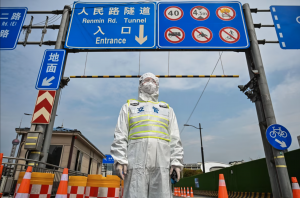As I’m in a Japanese dining establishment, I think it only appropriate to express my gratitude before the meal, as the Japanese do. So I whisper to the (metaphorically) virus-laden atmosphere around me:
Thank you COVID-19.
Tales of how Singaporeans have been responding to it are, by now, commonplace, and the stuff of legends: storming supermarkets and pilfering pharmacies; invading Johor Bahru and requisitioning their supplies; donning surgical masks everywhere in the closest approximation we will get to a political protest a la Hong Kong. But also: distributing free masks and hand sanitisers; initiating goodwill projects for healthcare workers and marginalised groups.
In short: Singaporeans’ reactions run the whole emotional spectrum.
Me? Apart from feeling grateful to our healthcare workers and concern for people whose livelihood or even health have been affected, I’m … eh, meh … amused, bemused, indifferent. I guess?
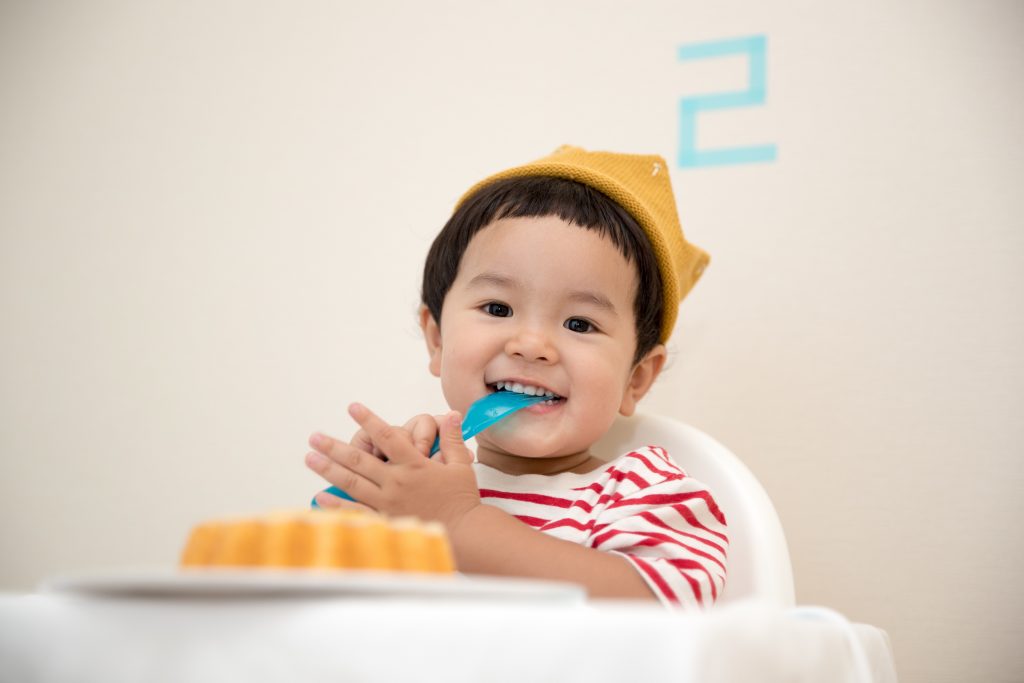
We enquired around the table: are you worried? Have you been to NTUC? Are you stocking up on supplies and groceries?
The answers: no, no, no.
A part of my extended family’s reluctance to participate in the mania is simply because we’re lazy and have no patience to queue. Another is our aversion to crowds. And yet another can be attributed to our faith that the Singapore government has things under control. After all, it is precisely in crisis management that the qualities about our government we find overbearing—its omniscience, omnipotence, and omnipresence—turn from failings to strengths.
What if our faith is misplaced? What if supermarkets become devoid of food?
“We’ll just be one of the first to die,” my aunt chuckles.
“Ya lor,” my mum concurs. “What’s the point?”
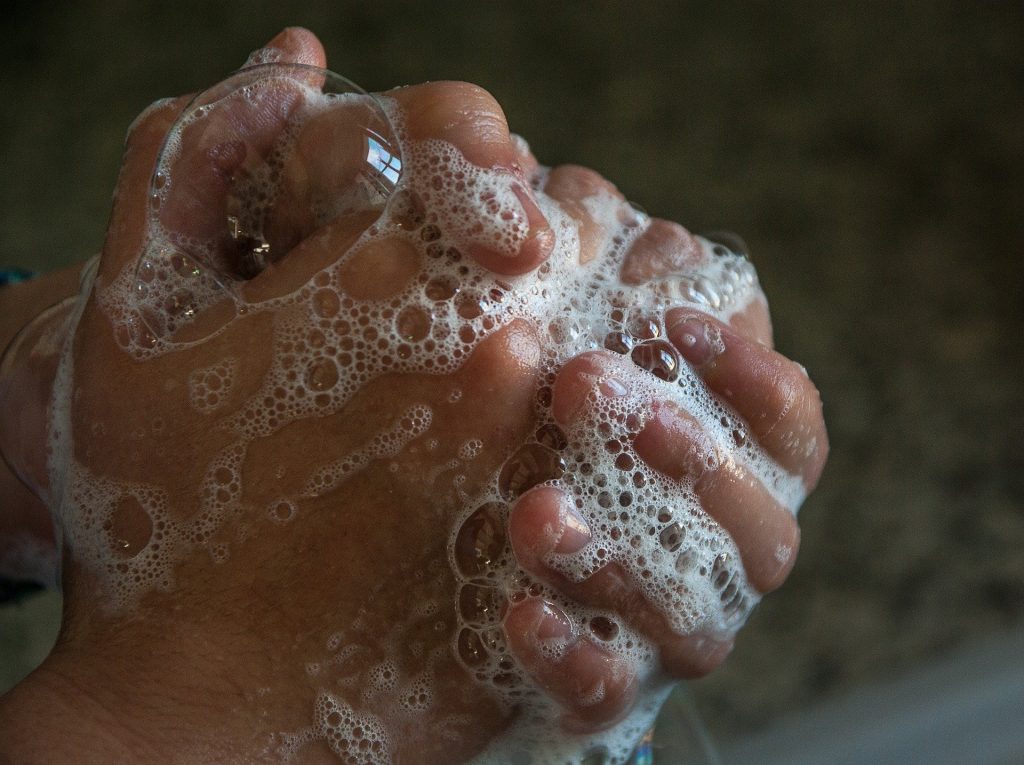
As far as I know, my close friends seem unperturbed by the situation as well. They’re still going rock climbing, watching movies, and I have yet to receive from them any of those forwarded WhatsApp messages asking me to WUHAN or follow the 2M rule. (In fact, I only found out about them after reading my colleague Terry’s article describing his experiences being on the opposite side of the emotional spectrum.)
My fellow Rice content farmers have, like Terence, made adjustments to the way they live, such as wearing a mask when out of the house, taking the bus instead of the train to work, bringing hand sanitiser everywhere, or “not touching anything other than myself”. Personally, my daily schedule and habits have largely remained unchanged.
I do wash my hands more frequently and keep them away from my face, but these are hygiene practices that should be in place anyway, regardless of what colour is in season for DORSCON.
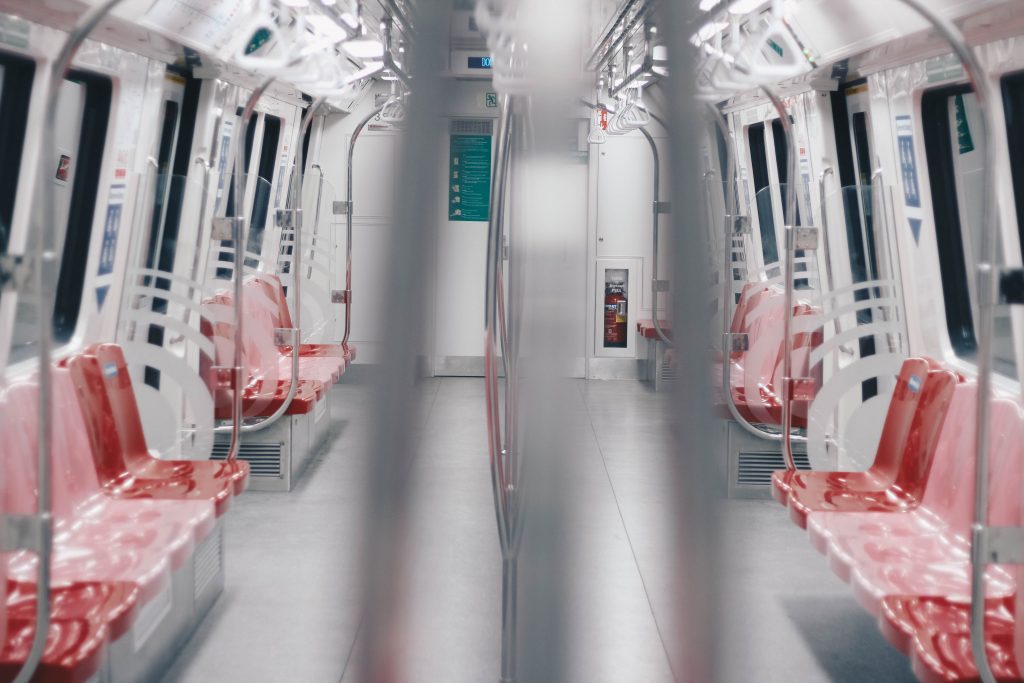
Malls are no longer claustrophobic mazes made up of constantly moving human-shaped obstacles which I have to dodge. Empty chairs in food courts beg me to sit my ass on them, and I humbly oblige. Picking the ingredients—sitting in the open air, marinating in every accidental sneeze and cough—for my bowl of yong tau foo, I feel like a rebel. From the look on the stall auntie’s face, I can tell she agrees.
Outside, I can hear the birds chirping again.
The panic—sorry, caution—has infected my office. We’ve instituted telecommuting, i.e. working from home. Now that I no longer have to devote brain capacity to performing the role of a functioning, sociable human being who laughs politely and appropriately at jokes cracked by my colleagues (if any of you are reading this: love you all <3), my productivity has skyrocketed. (I’ve written 500 words in an hour.)
COVID-19, in other words, has disembowelled the city and wrapped in me a cocoon of silence.
It might be dystopian for some, but this version of Singapore is paradise for me.
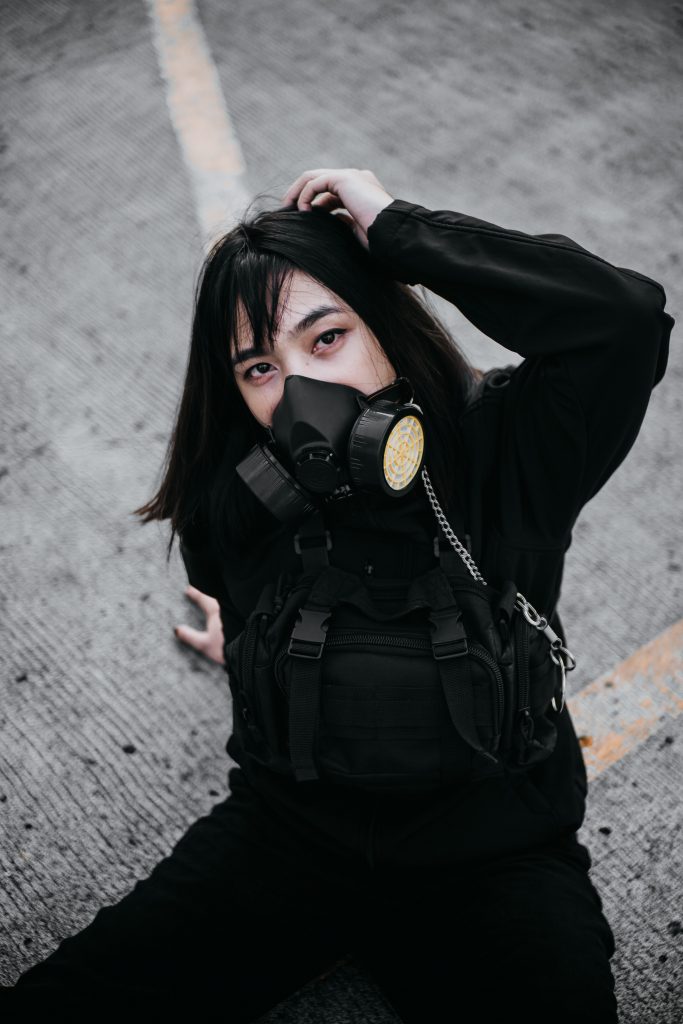
Personal experience has taught me that you can take all the precautions you want—enclose yourself in a hazmat suit, do cardiovascular exercise five times a week—but nothing can stop Mr Reaper from slipping under your door and whisking you away in the middle of the night.
Perhaps it’s also because I don’t have any liabilities, so I’m considerably less worried than, say, parents with young children, if anything should happen.
Sure, there are things on my bucket list, like try the needlessly extravagant “Marinated Botan Shrimp with Sea Urchin and Oscietra Caviar” at Waku Ghin (where the dish is served with a mother-of-pearl spoon because only plebeians let metal touch their tongue), or write an article so viral that even Ho Ching shares it with a personalised poem.
But if, because of COVID-19, I were to die within a week without accomplishing any of these goals, would I say my life were meaningless and unfulfilled?
No, because everyday I wake up and think, my life is already fulfilling.
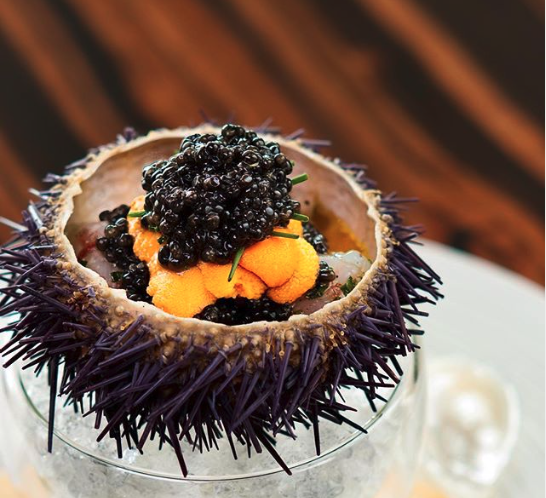
Life, to me, is inherently meaningless (That is not to say I’m unhappy. Meaninglessness =/= unhappiness.)
Having an umami explosion in my mouth or appearing on Ho Ching’s Facebook feed isn’t going to compel me to reassess my perspective on life, or make me feel as if I had lived a life worth living. Nothing I do will magically imbue my life with metaphysical weight.
And you can’t subtract zero from zero. So—
The point being: COVID-19 and its presence in my bloodstream or otherwise isn’t going to change my worldview. On the contrary, it only reinforces my sense of the arbitrary nature of human life. Therefore, given my particular circumstances, I don’t feel like there’s a point in orienting my life around COVID-19.
For instance, continuing to go to gym as usual means I’m touching a lot of surfaces groped by sweaty (and moist from other bodily fluids) palms, potentially exposing me to more virus, but I could just as well die from a freak accident like dropping a 100kg barbell on myself. And so on. So life goes on.
That said, my indifference to COVID-19 does not mean I don’t follow instructions on preventing its spread. But neither am I actively courting it like it’s one of those stupid people I always have crushes on.
At the end of the day, they always go away.
How are you reacting to DORSCON Orange? Wash your hands and then write us an email at community@ricemedia.co

